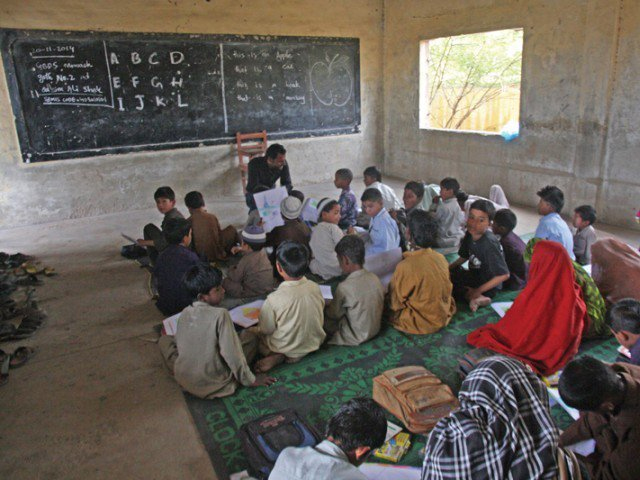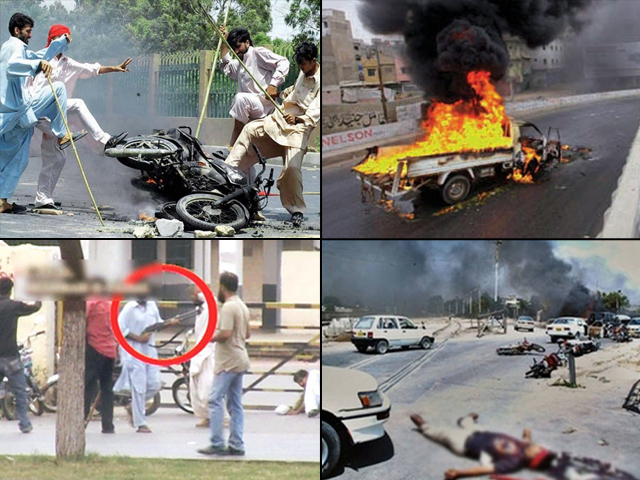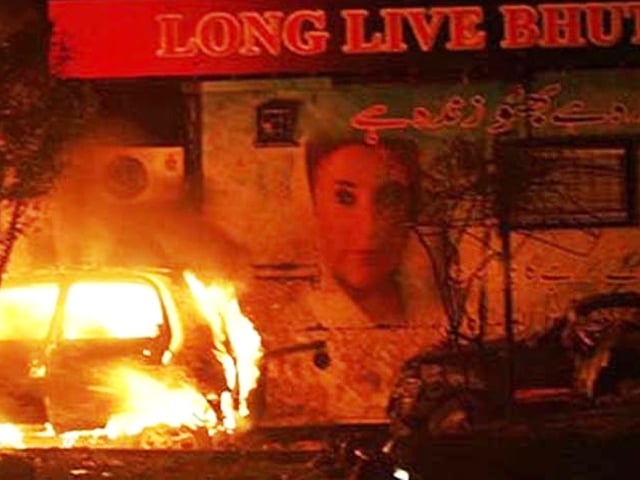
Kashmir Day does not mean anything to the average Pakistani
Our support and understanding of the Kashmir issue and Kashmiris has become a ritual limited to February 5th.
Growing up during the turbulent 80s in Karachi, I was never fully aware of the Kashmir issue. As a matter of fact, Kashmir was just a faraway scenic land for most Karachiities. It was largely irrelevant in the bigger scheme of things and it barely evoked sympathy from within us.
A certain event strengthened this notion back in 1989.
After my matriculation exams, I was trying to brush up my general knowledge in order to apply for a course in the Pakistan Army. A certain piece of news caught my attention regarding rigging in the General Elections in Occupied Kashmir. This inevitably led to widespread protests in Srinagar and other cities leading to scores of innocent lives being lost at the hands of merciless Indian LEA’s.
In the heat of the moment, I rushed out of my house and scribbled “Kashmir Surkh hay” (Kashmir is Red -a metaphor for the bloodshed in Occupied Kashmir) on a wall opposite my house. While I was passionately scribbling this graffiti, I was caught off guard by a passer-by on a motorcycle who turned out to be the area in-charge of a certain siyasi jamaat (political organisation). In a slithery tone he shouted,
“Kya kar raha hey bay?”
(What are you doing?)
I immediately panicked and before I could explain myself, he said something which I found difficult to interpret, but it went something like,
“Karachi’s mother is getting ravaged every day and you are worried about Kashmir!”
He ordered me to come along with him to their political office, because I was too afraid to say no, I gave in. When we reached the office, I was asked to sit in the room where they used to carry out beatings. Just as I was about to get slapped, luckily a neighbour of mine, who happened to be one of the senior members of the political organisation showed up and stared them down and told them to let me off the hook. He did scold me for getting into trouble for a ‘non-issue’ like Kashmir.
As the years passed by, Kashmir’s freedom or its accession to Pakistan appeared a distant dream for most who were fighting for the cause. The Kashmir dispute became an unfortunate mockery whereby various shopkeepers, tired of their defaulting customers, strategically pasted stickers around cash counters captioned “Kashmir ki azaadi tak udhaar bandh hay” (No credit until Kashmir is liberated). Kashmiri cries for freedom turned into our Schadenfraude. (German for feeling of enjoyment which emanates from seeing or hearing about the troubles of others.
Intrigued by the entire issue, I continued reading about the challenges faced in the native struggle led by separatist movements such as the Jammu Kashmir Liberation Front (JKLF) and its almost forgotten co-founder Maqbool Bhatt, who was hanged in 1984. I ardently believed that Occupied Kashmiris wanted their part of Kashmir to accede to Pakistan – darn I was wrong.
Fast forward to 1994.
We had planned a trip to Muzaffarabad in college, with the intention of travelling to Murree or drive further up to Naran. A pleasant surprise was in store for us as well. Our bus, which was carrying about 30 students, would be driven to Neelum valley, till the Line of Control (LoC) separating India and Pakistan’s Kashmir). Even back then, I don’t think I truly understood the gravity of the Kashmir situation. Maybe because I too was young and naïve.
Our courageous bus driver drove us up to the Athmuqaam sector, which is 100 km’s away from Muzaffarabad. It was a rollercoaster ride amidst serene mountains and we kept zigzagging alongside breath-taking rapids of the Jhelum River. We had Yeh haseen wadiyan from the movie Roja blaring on repeat. Coincidently, Roja was a Kashmir-themed movie.
Our bus driver confessed that no college or family, other than natives were allowed so far up due to the on-going conflict between Pakistan and India. The LoC was swarming with trigger happy soldiers on both sides of the border who would not think twice before shooting at any moving objects. On our drive to the LoC, we saw mortar holes and bullet riddled houses and hutments on our side of the LoC.
When we reached the Athmuqaam sector, we noticed an army picket. The sentries were dumbfounded when they found out we were visiting from Karachi. The sentries scolded our bus driver and ordered us to go back since it was too dangerous for us to be there. But since the sun was about to set, the journey back to Muzaffarabad would be riddled with peril and we had heard stories about gunners pulling the trigger under influence. Therefore, we had no choice, other than to stay the night there.
Spending the night at Athmuqaam was no fun. We were surrounded by security officials who were inquisitive and suspicious about our real intentions. To be honest, all we wanted was to head back to Muzaffarabad as soon as the first ray of light hit the sky.
Attending to the call of nature was a bigger challenge. We were supposed to descend into darkened hutments where icy streams of Jhelum rapids could be heard howling beneath two unsettled pieces of rock. I was instructed to plant my feet firmly and use the water from the stream to clean up, but without touching the water. How exactly does one surmount such a challenge?
Angered at this impossible order, I remember shouting at the officer who calmly suggested I keep my voice low, since Indian soldiers were only about 300 metres across the river. A mortal fear ran up my spine. Thoughts of an embarrassing end to my life made my heart skip a beat.
Upon returning to the room where we were to stay the night, I felt extremely claustrophobic – there were around 40 people in one room. No one slept that night. We were up exchanging views and answering questions about Karachi put forth by the curious soldiers.
Amongst a multitude of stories shared that night, one particular story caught my attention, the story of a Kashmiri goat herder who died in a landslide nearby. Upon retrieving his corpse, rescuers recovered thick wads of Indian currency. They had termed him a double agent.
I was baffled. Why would a Kashmiri, for whom Pakistan is fighting tooth and nail, betray our trust? But I could not make sense of his motives.
There was a sense of melancholy in the air that night, despite the hoopla of Kashmir banega Pakistan (Kashmir will become part of Pakistan). The misery of the natives was palpable, perhaps they were exhausted yet resigned to their fate; a fate which to this day remains in the hands of two warring nations.
Our support and understanding of the Kashmir issue and Kashmiris has become a ritual limited to February 5th. On this particular day, a few public figures hymn a chorus of Kashmir banega Pakistan like indifferent choir boys and Kashmir Day comes to an end.
The real pain and angst of the Kashmiri nation is at best reflected in a song titled, Jhelum in the movie Haider (2014) which raised the issue of missing persons; most are wiped out or incarcerated by Indian security forces.
Haider, which is a brilliant take on Kashmir’s plight, is based on Shakespeare’s play Hamlet. It was produced by Bollywood and not the lifetime patrons of the Kashmir cause, Pakistan.
Jhelum, Jhelum, dhoondhe kinara
(Jhelum, Jhelum looks for the shore)
Dooba sooraj, kin aankhon mein
Sooraj dooba, kin aankhon mein
Jehlum hua khaara
(The sun (did) set, in which eyes,
In which eyes did the sun set,
The Jhelum has become salty (as if with someone’s tears)
Jhelum, Jhelum dhoonde kinara
Kis se poochhein kitni der se dard ko sehte jaana hai
Andhi raat ka haath pakad kar kab tak chalte jaana hai
(To whom should I ask for how long do I have to bear with this pain,
and have to keep walking holding the hand of the blind night)
Lahu lahu lahu waqt ka khoon hua re
Lahu lahu lahu
Lahu behta angaara, lahu behta angara
(Blood-blood, there has been murder of time,
blood, blood, blood,
blood is flowing fireball.)




COMMENTS (26)
Comments are moderated and generally will be posted if they are on-topic and not abusive.
For more information, please see our Comments FAQ